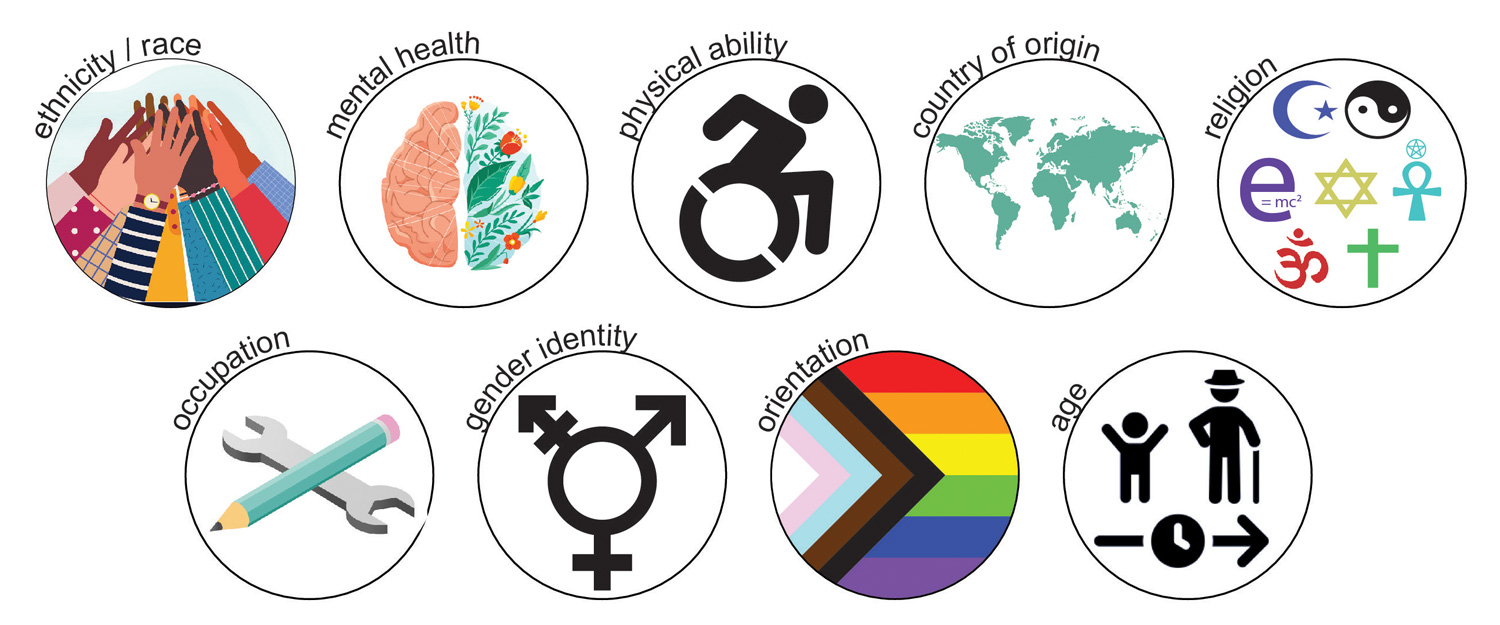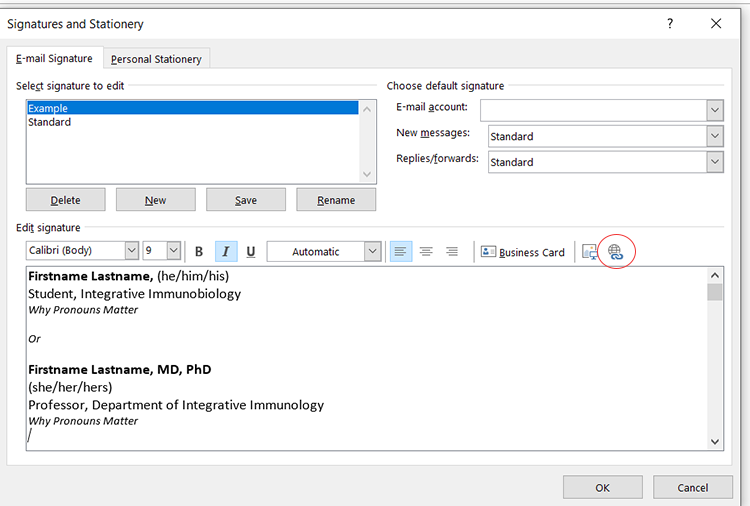Here you can find information on educational opportunities, how to make your data accessible to those with colorblindness, links to other campus resources, and more!

We want the best and brightest to join Duke Integrative Immunobiology! To support this goal, we realized one simple way that we can make meaningful improvements to our training environment is to promise to fight discrimination within our department. One step we have taken is to increase visible signage within our department, by creating our own “Nondiscrimination Placard”, which states that all people are welcome and respected within our department. This placard is a public signal that communicates that our department is accepting and welcoming. We welcome people of diverse ethnicities, races, mental health conditions, different physical abilities, diverse countries of origin, different religions, occupations, genders, orientations, and from a range of ages. We encourage everyone who supports this goal to post this at their desk and/or lab. This is a simple step that we believe shows how welcoming our department truly is!”
We encourage you to prioritize your mental well-being, as it is a crucial component of your overall success and happiness. Our university offers a range of resources designed to support you on this journey, including counseling services, mental health workshops, and peer support networks. Seeking help is a sign of strength and self-awareness, not weakness, and it's important to remember that you are not alone in this process.
We are here to support you every step of the way, and reaching out for assistance can make a significant difference in managing stress and enhancing your academic and personal life. To this end, we have compiled a list of resources to help you quickly find the help you need.
Our department has assembled a guide on how to become established as a graduate student in the US. This guide was created by compiling a wide variety of independent resources from across Duke, including the Duke International Student Center and Duke Visa Services. It is intended to be a starting reference point to help students become established at Duke. If you have any further questions beyond what will be provided in this guide, please reach out to the Director of Graduate Studies, the Director of Graduate Studies Assistant, the Duke International Student Center, or Duke Visa Services.
DOWNLOAD THE GUIDE
In order to create an environment of inclusion and accountability, we encourage everyone to make this flyer openly accessible to their labs. If you have questions about filing a report, we encourage you to visit the Filing a Report page.

Accessibility
There are a surprising number of colorblind people who want to read your papers! So that everyone can appreciate your wonderful science, we suggest using colorblind friendly palettes for your data. One great resource is Coloring for Colorblindness, which not only has 3 suggested colorblind friendly color palettes available but also shows what those colors look like for the three most common forms of colorblindness. Another resource is Introduction to Color Schemes.
Most applications such as Prism allow you to create a custom color palette to be able to easily use these colors across all your data, and even have pre-made colorblind friendly color palettes to apply to your data. Image J/FIJI also has options for changing the pseudo color of IF to avoid having red and green for your images.
Using colorblind friendly palettes for your data will help everyone, from department members at weekly WIP to strangers reading published papers to better appreciate your amazing science!
We have assembled 3 colorblind friendly palettes from Introduction to Color Schemes created by Paul Tol. For each color, the hexadecimal code (for web) and the RGB color codes are provided.
Bright Color Scheme

Blue | HEX #4477AA | RGB 68,119,170
Cyan | HEX #66CCEE | RGB 102,204,238
Green | HEX #228833 | RGB 34,136,51
Yellow | HEX #CCBB44 | RGB 204,187,68
Red | HEX #EE6677 | RGB 238,102,119
Purple | HEX #AA3377 | RGB 170,51,119
Grey | HEX #BBBBBB | RGB 187,187,187
Vibrant Color Scheme

Blue | HEX #0077BB | RGB 0,119,187
Cyan | HEX #33BBEE | RGB 51,187,238
Teal | HEX #009988 | RGB 0,153,136
Orange | HEX #EE7733 | RGB 238,119,51
Red | HEX #CC3311 | RGB 204,51,17
Magenta | HEX #EE3377 | RGB 238,51,119
Grey | HEX #BBBBBB | RGB 187,187,187
Muted Color Scheme

Indigo | HEX #332288 | RGB 51,34,136
Cyan | HEX #88CCEE | RGB 136,204,238
Teal | HEX #44AA99 | RGB 68,170,153
Green | HEX #117733 | RGB 17,119,51
Olive | HEX #999933 | RGB 153,153,51
Sand | HEX #DDCC77 | RGB 221,204,119
Rose | HEX #CC6677 | RGB 204,102,119
Wine | HEX #882255 | RGB 136,34,85
Purple | HEX #AA4499 | RGB 170,68,153
Pale Gray | HEX #DDDDDD | RGB 221,221,221
Support rooms for lactation are present in many buildings across campus and are managed by Lactation Support Services.
There are several single stall restrooms found across Duke’s campus. The Duke Center for Sexual and Gender Diversity compiles their locations on an interactive map on their website:
We strive to counteract exclusion and show LGBTQ+ people at large that Duke University and our Department of Integrative Immunobiology value inclusion. Below are information on how to add pronouns to your signature in Outlook or to your display name in Zoom.
Add Pronouns to Outlook
- Find the “Edit Signatures” button.
- On the Mac this is in the menu Outlook >Preferences>Email>Signatures
- On the PC, open an email and then select Insert > Signature > Signatures
- Type in your pronouns, for example:
Firstname Lastname
(he/him/his)
Student, Immunology PhD Program - Save

Add "Why Pronouns Matter" Link to Your Email Signature Block
- Add the text "Why Pronouns Matter" to the end of your signature block (see above)
- Highlight the text "Why Pronouns Matter"
- Select the Globe/Chain (hyperlink) icon on the signature field toolbar
- Copy this URL https://students.duke.edu/belonging/icr/csgd/pronouns/
- Paste the URL into the address box
- Save.
Add Pronouns to Zoom
For the most up to date information on how to add pronouns to zoom, please check out the Zoom guide to Adding and Sharing your Pronouns.